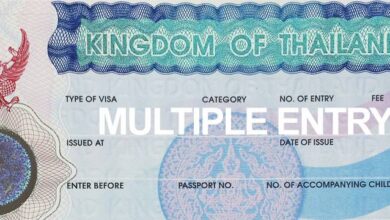Nicaragua’s Trade Trends: A deep dive into the import and export trends

Expanding your business globally requires more than ambition—it demands insight. Staying informed on the latest trade trends and strategies is essential for sustainable service expansion. Import Globals, through its comprehensive Nicaragua Import and Export Data, equips businesses with vital intelligence to analyze competitive movements and market dynamics within this specific region.
Unlocking Business Potential with Nicaragua Import Data
In today’s rapidly shifting global economy, data-driven strategies are no longer optional. They form the backbone of effective business growth. Nicaragua Import Data plays a central role in providing clarity on the country’s inbound trade landscape. Through detailed customs records, businesses can assess which product categories are in demand and how those patterns evolve.
By analyzing the import trends in Nicaragua, companies—both local and international—can identify rising sectors and understand which commodities experience sustained demand. For foreign exporters, this data is a gateway to recognizing opportunities where their products are already in steady demand within Nicaragua.
Local entrepreneurs, too, benefit from these insights. They can pinpoint products with high import volumes, revealing areas where domestic supply falls short. This, in turn, highlights potential market gaps that could be addressed through local production or partnership. As of 2024, Nicaragua’s import trade value reached $9.7 billion, marking a 2.8% increase from the previous year. The combination of increased consumer purchasing power and underdeveloped production sectors is driving this growth.
Import Globals delivers more than just numbers—it offers context. The Nicaragua Import Data includes key fields such as HS Code, Importer and Exporter Details, Product Description, Quantity, Pricing, Country of Origin and Destination, and Port Information. These details help businesses navigate regulatory environments, understand duty structures, and prepare accurate documentation for customs clearance, reducing the risk of border delays or rejections.
The country’s strategic investment in trade infrastructure and economic openness has also strengthened its position as a significant importer of essential goods. With this data, business owners can evaluate the economic impact of trade, monitor supply chain dependencies, and make well-informed decisions aligned with both domestic needs and global developments.
The Role of Nicaragua Export Data in Guiding Business Growth
In a globally interconnected economy, trade decisions carry significant implications. Companies engaged in international trade must maintain visibility over outbound shipments to align with shifting market demands. Nicaragua Export Data from Import Globals enables this by offering crucial insights into the country’s export performance and global trade relationships.
Understanding what Nicaragua exports—and to which countries—allows companies to identify where production efforts are succeeding and which sectors are most competitive. It also helps foreign partners assess product demand and potential alignment with their own import needs.
In 2024, Nicaragua’s exports were valued at approximately $12 billion, reflecting a 3.2% year-on-year increase. The country’s export growth is fueled by diverse sectors including agriculture, mining, textiles, and manufacturing. Top-performing categories include gold, coffee, beef, and processed meat products. Robust trade relationships with the United States, Mexico, and other Central American countries have played a pivotal role in this expansion.
By leveraging this data, investors and trade planners can evaluate which sectors to target, how to tailor offerings for external markets, and where collaboration or investment may generate strong returns. Import Globals ensures that companies have access to real-time data structured for actionable insight.
How Nicaragua Import and Export Data Drive Strategic Decisions
Regardless of business size or industry, staying updated with modern trade strategies is essential for identifying opportunities, managing risk, and achieving long-term growth. Nicaragua Import Data provides insight into the country’s demand patterns, revealing which goods are in high demand and which sectors rely heavily on imports.
Simultaneously, Nicaragua Export Data reveals international demand for the country’s key commodities, helping companies looking to scale globally understand where to direct their efforts. It offers guidance on the most promising foreign markets and the export-ready product categories gaining traction abroad.
Together, these datasets provide comprehensive trade visibility—covering everything from product classification and HS codes to tariff structures and compliance requirements. Businesses can confidently handle customs procedures and avoid regulatory missteps. More importantly, they gain the insight needed for effective logistics planning, market entry, and investment.
Access to such granular, up-to-date data supports informed decision-making, whether the goal is to expand operations, build international partnerships, or align with global trade standards.
Conclusion
Whether you operate a small enterprise or a large trading firm, staying informed of current trade trends is crucial for competing in a global marketplace. Import Globals offers detailed Nicaragua import and export data that empowers businesses with the knowledge needed to navigate evolving demand, identify strategic opportunities, and tailor operations to meet global expectations. With accurate and relevant trade insights, your business is better positioned to make confident decisions and thrive internationally.



